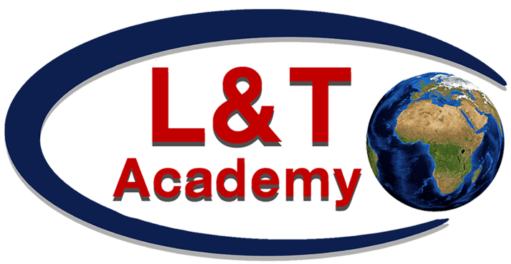Description
Course Description:
This 12-week course offers students an overview of the major genres and themes in literature, including fiction, poetry, drama, and non-fiction. Students will learn to analyze literary texts, identify key literary elements, and engage with various critical perspectives. The course aims to enhance students’ appreciation of literature and develop their skills in reading, interpretation, and critical analysis.
Course Objectives:
- Develop an understanding of key literary genres and forms.
- Analyze literary texts using critical vocabulary and concepts.
- Explore major themes and issues in literature across different periods and cultures.
- Improve close reading, analytical, and interpretative skills.
- Engage with different critical approaches to literature.
Weekly Outline:
Week 1: Introduction to Literature and Literary Genres
- Topics Covered:
- What is literature? Defining literature and its purposes.
- Overview of literary genres: fiction, poetry, drama, and non-fiction.
- The role of literature in society.
- Reading/Activities:
- Selections from different genres (short story, poem, and play excerpt).
- Discussion: What makes a text literary?
Week 2: Fiction – Elements of the Short Story
- Topics Covered:
- Introduction to fiction and its elements: plot, character, setting, point of view, and theme.
- Close reading and analysis of a short story.
- Reading/Activities:
- Short story (e.g., Kate Chopin’s “The Story of an Hour” or Edgar Allan Poe’s “The Tell-Tale Heart”).
- Class discussion and analysis of literary elements.
Week 3: Fiction – The Novel
- Topics Covered:
- Exploration of the novel as a form: structure, narrative techniques, and character development.
- Introduction to different sub-genres (e.g., bildungsroman, gothic, historical).
- Reading/Activities:
- Excerpts from a novel (e.g., Pride and Prejudice by Jane Austen or Frankenstein by Mary Shelley).
- Group discussion on the development of plot and character.
Week 4: Poetry – Forms and Techniques
- Topics Covered:
- Introduction to poetry: forms (sonnet, free verse, haiku, etc.) and techniques (meter, rhyme, imagery).
- Analyzing poetic language and structure.
- Reading/Activities:
- Poems from various traditions (e.g., Shakespeare’s sonnets, Langston Hughes, Emily Dickinson).
- Workshop on analyzing poetic devices.
Week 5: Poetry – Themes and Interpretation
- Topics Covered:
- Thematic analysis in poetry: love, death, nature, identity, etc.
- Approaches to interpreting poetry: symbol, metaphor, and tone.
- Reading/Activities:
- Thematic poetry readings (e.g., Romantic poetry, Modernist poetry).
- Group interpretation exercises.
Week 6: Drama – Elements of Drama
- Topics Covered:
- Introduction to drama: elements of a play (dialogue, setting, plot, characters).
- The structure of plays: acts, scenes, and dramatic tension.
- Reading/Activities:
- Reading and analysis of a one-act play or scenes from a classic play (e.g., Antigone by Sophocles or A Doll’s House by Henrik Ibsen).
- Group performance and discussion of dramatic techniques.
Week 7: Drama – Tragedy and Comedy
- Topics Covered:
- Exploration of the major dramatic genres: tragedy and comedy.
- Thematic and structural differences between tragedy and comedy.
- Reading/Activities:
- Excerpts from Shakespeare’s plays (e.g., Hamlet for tragedy, Much Ado About Nothing for comedy).
- Discussion: How do tragedy and comedy reflect human experience?
Week 8: Non-Fiction – Essays and Memoirs
- Topics Covered:
- Introduction to non-fiction literature: essays, memoirs, and autobiographies.
- Analyzing rhetorical strategies, narrative voice, and ethical issues in non-fiction.
- Reading/Activities:
- Selected essays or memoir excerpts (e.g., George Orwell’s “Shooting an Elephant” or Joan Didion’s The Year of Magical Thinking).
- Writing an analytical response to a non-fiction text.
Week 9: Literary Themes – Identity, Society, and Culture
- Topics Covered:
- Exploring key themes in literature: identity, race, gender, class, and culture.
- The role of literature in reflecting and shaping social and cultural issues.
- Reading/Activities:
- Thematic readings across genres (e.g., Their Eyes Were Watching God by Zora Neale Hurston or The Yellow Wallpaper by Charlotte Perkins Gilman).
- Discussion on how literature addresses social identity and cultural conflicts.
Week 10: Critical Approaches to Literature
- Topics Covered:
- Introduction to literary theory and criticism: formalism, feminism, Marxism, postcolonialism, etc.
- Applying critical approaches to literary texts.
- Reading/Activities:
- Critical essays or theoretical excerpts (e.g., excerpts from Virginia Woolf’s A Room of One’s Own or Chinua Achebe’s critique of Heart of Darkness).
- Workshop: Applying a critical lens to a previously studied text.
Week 11: The Role of the Reader – Interpretation and Meaning
- Topics Covered:
- Theories of reading and interpretation: reader-response theory.
- How do readers contribute to the meaning of a text?
- Reading/Activities:
- Texts open to multiple interpretations (e.g., Bartleby, the Scrivener by Herman Melville).
- Group discussion: How does our reading shape the meaning of a text?
Week 12: Literature and the Modern World
- Topics Covered:
- The relevance of literature in contemporary society.
- Literature’s role in engaging with contemporary issues (e.g., climate change, technology, global politics).
- Course review and synthesis of key concepts.
- Reading/Activities:
- Contemporary literary works (e.g., short stories or poems addressing modern issues).
- Final discussion: The future of literature in the digital age.
Assessment Methods:
- Weekly reading quizzes and participation in discussions.
- Short analytical essays on assigned readings.
- Midterm exam covering the first half of the course.
- Final essay or project that synthesizes key concepts from the course.
Recommended Texts and Resources:
- An anthology of literature covering various genres and periods.
- Supplementary readings and critical essays provided throughout the course.
- Access to online literary databases and journals.
Final Project:
Students will write a final essay or create a project (such as a multimedia presentation) that analyzes a specific literary work or theme, incorporating different genres and critical approaches discussed in the course.
This outline provides a balanced introduction to literature, allowing students to explore a variety of texts and themes while developing critical reading and analytical skills. The course covers a broad range of literary genres and concepts, ensuring students gain a comprehensive understanding of literature and its significance.



Reviews
There are no reviews yet.